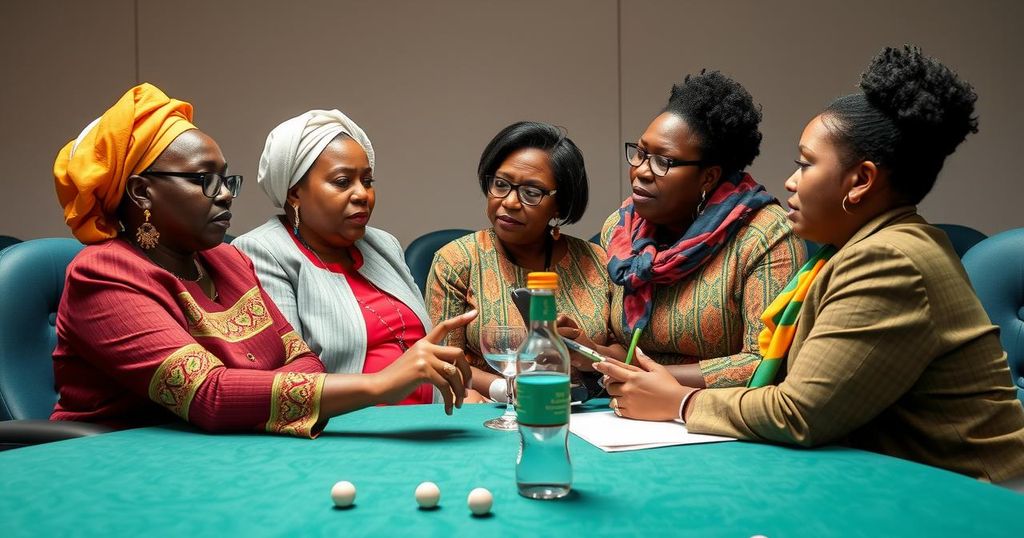Enhancing Women’s Representation in Botswana’s Political Landscape

Botswana’s parliament sees a significant underrepresentation of women, with only 28 female candidates contesting in 2024, a decline from previous elections. Despite comprising over half of eligible voters, women are largely absent from decision-making roles. Political parties must reform candidate selection processes to promote inclusivity and comply with gender equality mandates, addressing systemic barriers to women’s political participation.
Botswana’s political landscape has long been scrutinized regarding the representation of women in governmental positions, particularly ahead of the 2024 general elections. Despite women comprising 54% of eligible voters, their participation in parliament remains dismal; only 28 women contested for the 258 available parliamentary seats, translating to a mere 10.85%. Of these, just three secured positions, which reflects a significant decline from the previous elections. This underrepresentation signals an urgent need for political parties in Botswana to reform their candidate selection processes to foster inclusivity and better represent the interests of their constituents.
Political parties in Botswana must actively work towards correcting the gender imbalance within their ranks. The consistently low numbers of women elected are indicative of systemic issues within party structures that fail to promote or empower female candidates effectively. The situation warrants an examination of existing practices and the implementation of strategies that can enhance female political participation, thereby supporting the notion of a truly democratic institution that reflects the society it serves.
Historically, efforts to address gender parity in political representation in Southern Africa have included regional initiatives such as the Southern African Development Community’s gender checklist introduced in 2002. This initiative aimed to integrate gender equality principles throughout the electoral process, yet significant gaps remain. Other countries have adopted constitutional measures to guarantee women’s inclusion, illustrating potential pathways that Botswana could emulate to enhance female representation in governance.
The consistently echoed question in the Botswana political discourse, “bomme ba kae?” (where are the women?), not only reflects a societal concern but also challenges political parties to introspect on their commitment to gender inclusivity. By addressing these systemic barriers, Botswana’s political parties can play a pivotal role in advancing women’s representation, ensuring policies that are responsive to the needs of the entire populace.
In conclusion, the pressing need for the political representation of women in Botswana cannot be overstated. The statistics indicate that significant reform is necessary within political parties to create a more equitable and representative governance framework. The political participation of women is not merely a matter of fairness; it is essential for a functional democracy that serves its constituents effectively.
Botswana’s political framework has been characterized by a persistent underrepresentation of women in elective positions, sparking widespread concern regarding inclusion and equity in governance. Women, despite making up the majority of the electorate, have historically experienced barriers to entry in political spaces, limiting their impact on policies that directly affect their lives. As the 2024 general elections approach, the critical question of women’s representation gains renewed urgency, prompting calls for reform within political parties to ensure a fair and balanced electoral environment.
The critical need to increase female representation in Botswana’s parliament is underscored by the stark contrast between the electorate’s demographics and the political landscape. The 2024 elections present a pivotal opportunity for political parties to reevaluate their candidate selection processes and implement strategies conducive to elevating women’s voices in governance. An inclusive political environment is essential not only for democracy but also for the development of comprehensive policies that address the needs of all citizens.
Original Source: constitutionnet.org






